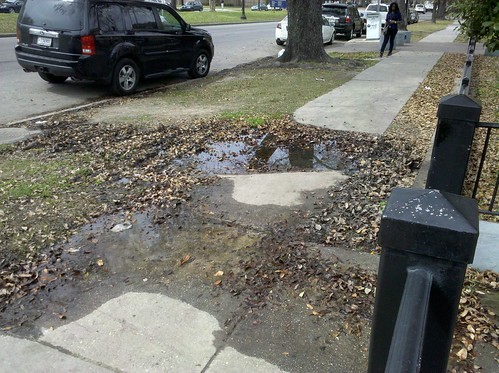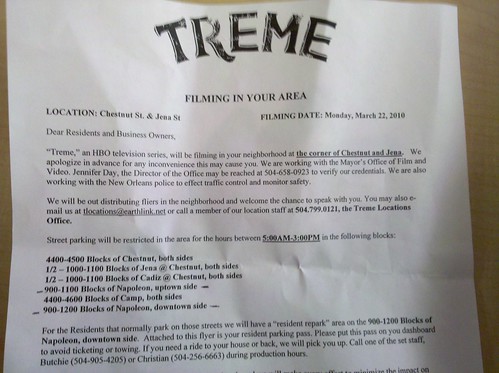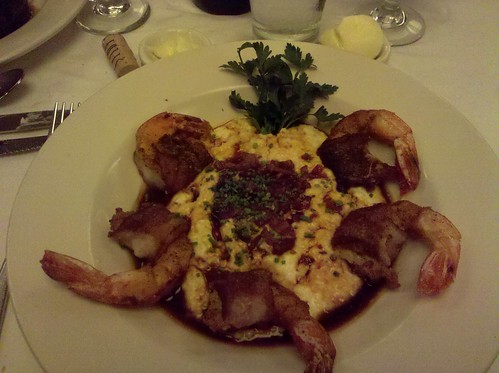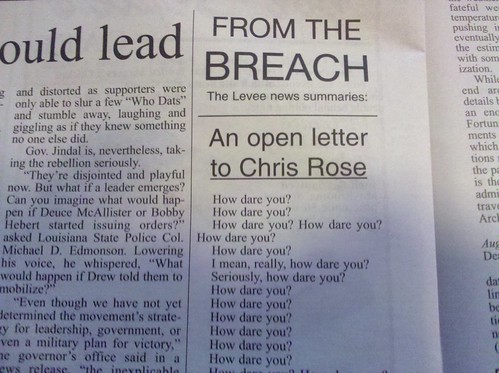Although Americans are reading more words today than they ever have, there is evidence that the content of that reading—much of it now done on the Internet—has become less and less challenging, and that student reading lists made up mostly of "fun," lightweight fiction are accelerating the trend.Yeah okay sounds good but... well look. I read a lot of stuff during a typical day that falls squarely in the "newspapers and magazines real-world knowledge" category. And I just checked my personal library record to note that of the 13 items I have currently checked out, only two of those are novels. The thing is, and I don't have any subtle way to put this and I'm sure most of the regular readers here will agree, outside of maybe Joe Cao's campaign finance staff, I'm probably one of the 5 or 10 dimmest folks allowed to move about this city on his own recognizance.
"People don't really understand the nature of reading. They feel that reading is a skill, that it's transferable, so once you're a good reader, you can read anything that's put in front of you," says Daniel Willingham, a University of Virginia cognitive psychologist who focuses on K-12 education. "But that's only true for decoding—what you learn until grade three or four. After that, when you see good readers versus poor readers, what you're looking at is mostly differences in the knowledge that kids bring to the reading. It's easy to read something when you already know something about the topic. And if you don't know about the topic, it's utterly opaque to you."
That's why children should read newspapers and magazines, texts about nature and technology, and biographies—genres that increase real-world knowledge. This is especially important for poor children, who may not be exposed to as much "background" information at home: the random vocabulary, facts, and associations that make it easier to do well on tests like the NAEP and SAT, and to succeed in the workplace.
Meanwhile the three smartest individuals whose reading habits I am somewhat familiar with are Menckles who reads mostly fantasy/sci-fi, my friend Rosalind who reads crime drama, and my friend Daisy who reads and reviews an unfathomable.. and I mean truly inhuman.. quantity of "fiction of interest to lesbian, gay, bisexual, transgendered, queer, and questioning teenagers".
So, you know, to hell with that theory. Q. E. D. (whatever that means)








